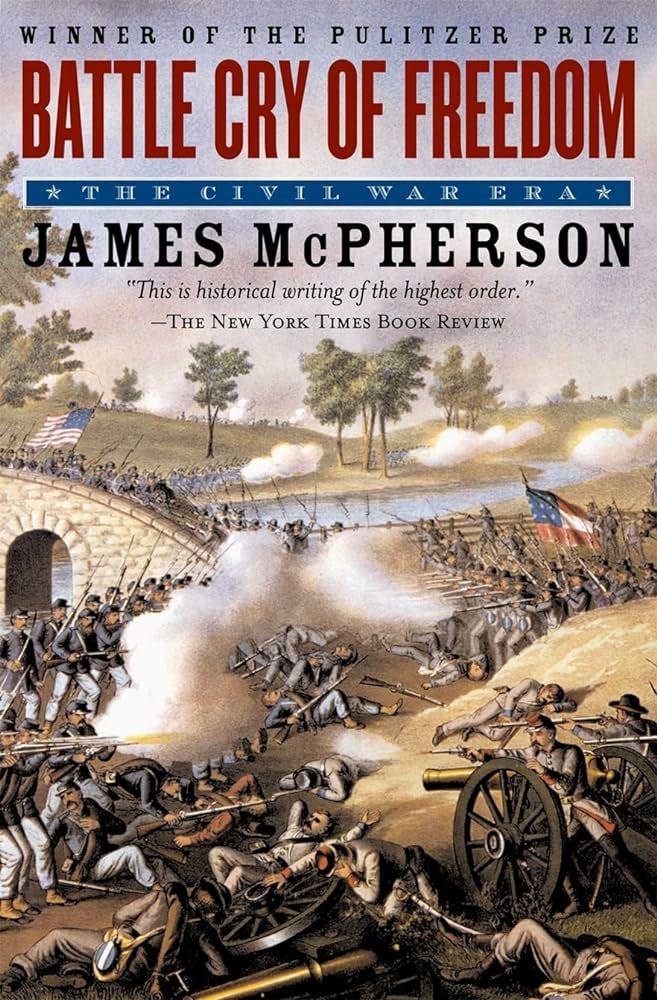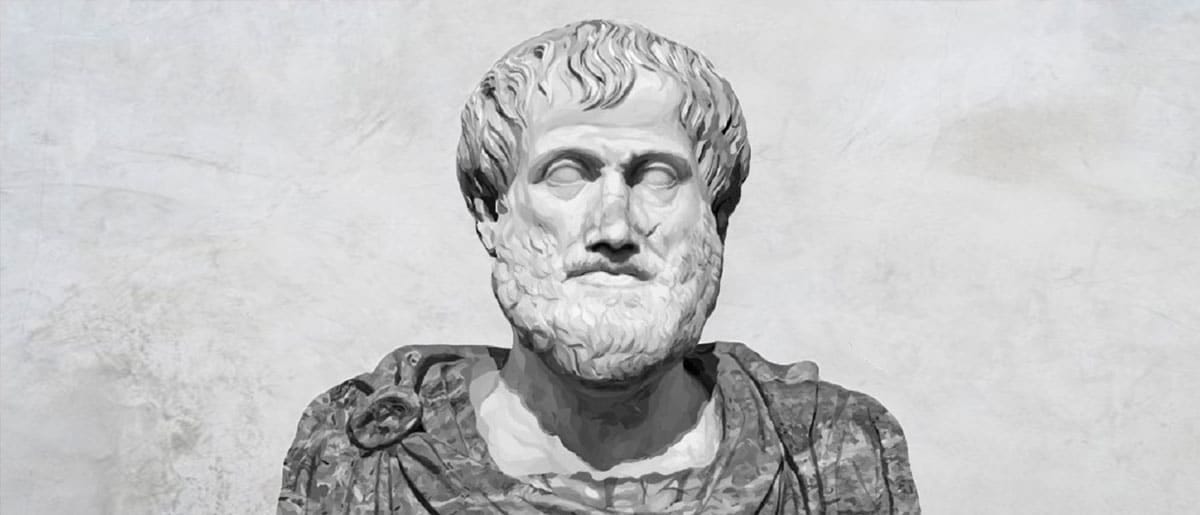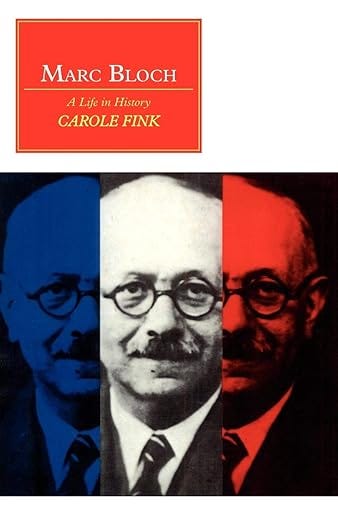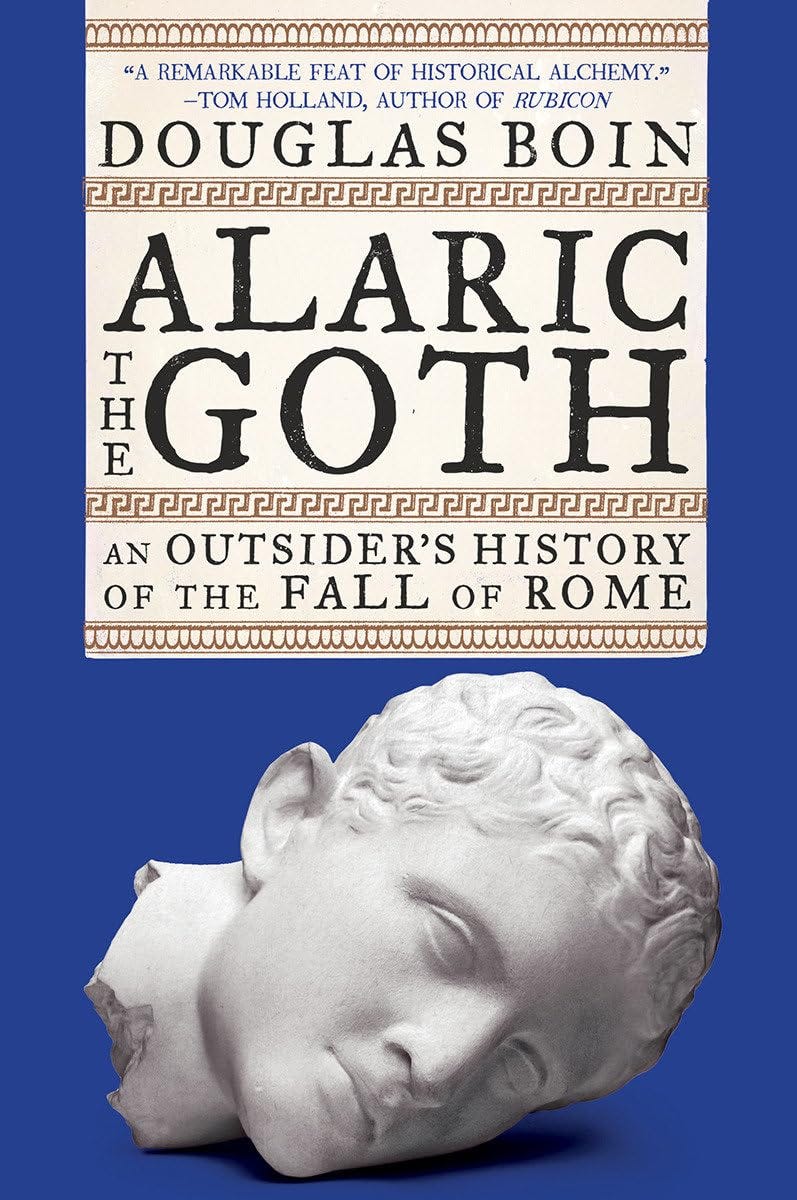Some Books I'm Excited About, Vol. 1
History, history, and...history. I promise, I'll do a fiction version of this soon.
Welcome to Some Books I’m Excited About, or, Some Books Worth Your Time. These will be book recommendation posts, looking at History, Fantasy, Science Fiction, and Thrillers.
Or, whatever I’m into at the moment.
This installment is exclusively history. These may not be for everyone, but they’re books I’m interested in checking out in the near future, so I hope these recommendations (even though I haven’t read them yet) sound interesting to you.
Like I said, this is a list of recommendations, but it also isn’t.
I can’t very well claim these are all smash hits, when I haven’t read them. But I can tell you this, and you can take it for whatever it’s worth to you: I’m excited to read these books.
Battle Cry of Freedom by James McPherson
I’m revving up for a Compendium show touching on the Civil War. I’ve already cracked open this one and gotten thigh-deep in the obligatory economics opening chapter.
Side note: I love context in history, so I always appreciate a good context chapter to get things rolling, but it is a funny trope of chunky histories that they always begin with economics or religion.
I like to grab a “backbone” history for the compendium shows. I mean by that a grand sweep that covers all the events I’ll talk about in the show, and usually one that can center the narrative, or keep me on track in regard to facts. Usually, a “backbone” book for the shows also brings in some wider context that I can dive deeper on with further reading.
I think Battle Cry of Freedom will be the “backbone” book of the Civil War show.
So far, it’s a page-turner for me. I knew in broad strokes some of the political struggles pre-Civil War, but it’s amazing to see proto-capitalism at work, and how the North and the South diverged economically, which led to a divergence morally as well.
Here’s a couple quotes:
Savannah lawyer Charles C. Jones said about the divide between North and South:
They “have been so entirely separated by climate, by morals, by religion, and by estimates so totally opposite of all that constitutes honor, truth, and manliness, that they cannot longer exist under the same government.”48 Underlying all of these differences was the peculiar institution. “On the subject of slavery,” declared the Charleston Mercury in 1858, “the North and South . . . are not only two Peoples, but they are rival, hostile Peoples.”
And, here’s a bit about how the South reconciled slavery based on historical precedent (which is a whole moral can of worms):
Indeed, said Senator Robert M. T. Hunter of Virginia, “there is not a respectable system of civilization known to history whose foundations were not laid in the institution of domestic slavery.” “Instead of an evil,” said John C. Calhoun in summing up the southern position, slavery was “a positive good . . . the most safe and stable basis for free institutions in the world.”
I’ll most likely dive into this in the show, but notice the blurring of lines between historical slavery (almost never race-based) and antebellum slavery. This concept Calhoun references of a moral switch from “necessary evil” to “positive good” while reprehensible to modern sensibilities, was based on a theory posited by Aristotle that slavery was natural, and that humanity are divided into two classes: slave, and non-slave.
There’s also some interesting points made about the economic and education divide between North and South:
In business the proportion of Yankees was three times as great, and among engineers and inventors it was six times as large. Nearly twice the percentage of northern youth attended school. Almost half of the southern people (including slaves) were illiterate, compared to 6 percent of residents of free states.
While the north embraced free labor and introduced wage labor, the south doubled down on transatlantic slavery. Which begs the question: why bother sending your children to school if their future was as a cotton planter, not as an industrious economist, philosopher, entrepreneur, or inventor.
And all of that is just packed into the first 75 pages.
A Life in History by Marc Bloch
This book comes by way of a recommendation by Myke Cole. I interviewed him on the show recently, (Listen to the episode here) and he said this book was instrumental in formulating his ideas about approaching history.
I admittedly don’t know a ton about Bloch other than he was a medievalist. But, any books that talk about a historian’s craft sound excellent to me!
I’m thinking of it a bit like Stephen King’s On Writing, but history.
Alaric the Goth by Douglas Boin
This is a biographical sketch of Alaric, King of the Visigoths. This fella conquered Rome in 410 AD CE. But before that, he was a mercenary fighting for the Romans.
Rarely do we get biographical looks at relatively misty characters in history, and I’ve seen this one highly recommended, so I’m excited to get into it.
The Alaric of history is actually so misty, that Boin writes this about how his story was recorded by ancient historians:
The fast-paced narratives and impressionistic histories that were written at the time by Oly, Philostorgius, and Orosius place Alaric all over the map of northern Italy, without narrating the events in chronological order. Later writers, among them, Socrates of Constantinople, Sozomen, Jordanes, and Zosimus, never corrected their predecessors’ errors or found their structure perfectly satisfying. As a result, precision is lacking and dates differ. In Jordanes’s Gothic account, Alaric wins the Battle of Pollentia. In Claudian, he loses it. One modern scholar has called it “a draw.”
That’s all I’ve got for Vol. 1 of Books you Should Check Out, or Books I’m Interested In, or…
I don’t have a clue what I’m going to call this series, but nevertheless, I hope you enjoy, and happy reading.







